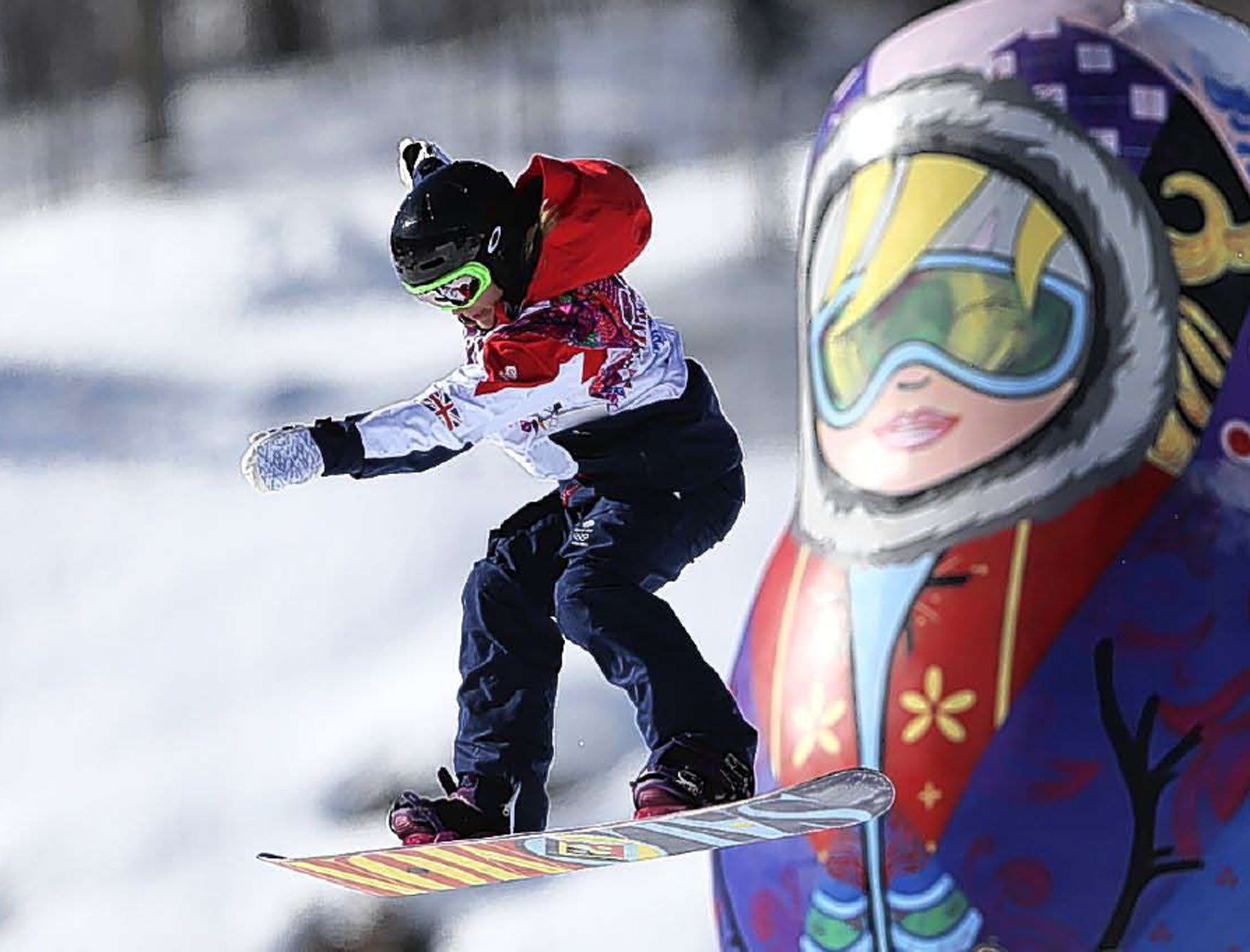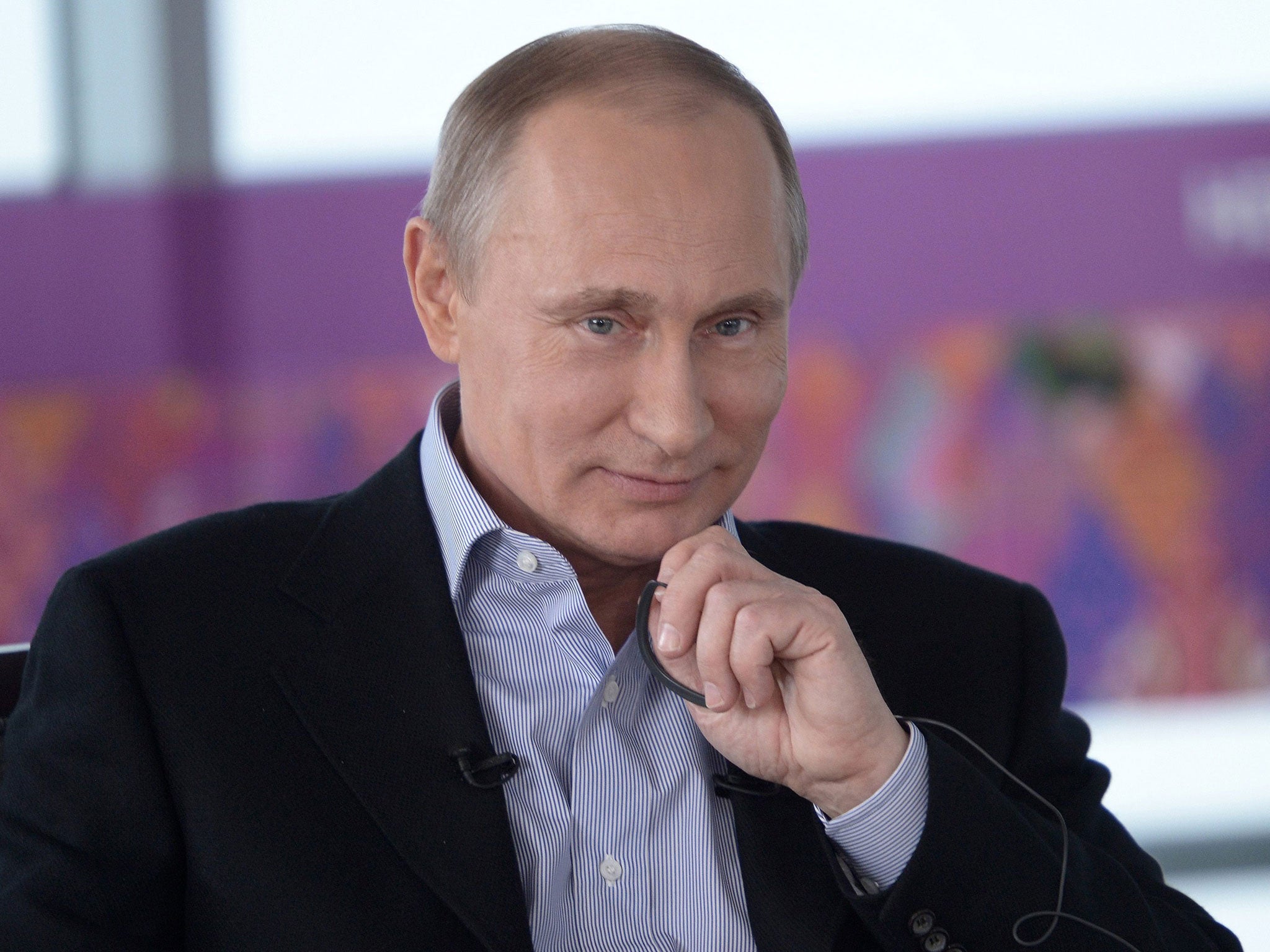Russia doesn’t seem to care that it has had to spend stupid money in order to host the Winter Olympics. Maybe it should
The Games are stunningly, ludicrously, absurdly expensive. To take a round figure they look like costing $50bn


Your support helps us to tell the story
From reproductive rights to climate change to Big Tech, The Independent is on the ground when the story is developing. Whether it's investigating the financials of Elon Musk's pro-Trump PAC or producing our latest documentary, 'The A Word', which shines a light on the American women fighting for reproductive rights, we know how important it is to parse out the facts from the messaging.
At such a critical moment in US history, we need reporters on the ground. Your donation allows us to keep sending journalists to speak to both sides of the story.
The Independent is trusted by Americans across the entire political spectrum. And unlike many other quality news outlets, we choose not to lock Americans out of our reporting and analysis with paywalls. We believe quality journalism should be available to everyone, paid for by those who can afford it.
Your support makes all the difference.For many people the Sochi Winter Olympics will be about politics; for others they will be about swagger; for some they may even be about sport. But arguably the most important aspect of the Games, or at least the one with the greatest long-term resonance, will be economics. For though the Games are designed to demonstrate the power of the Russian economy, they actually will highlight quite the opposite: its weakness.
For a start the Games are stunningly, ludicrously, absurdly expensive. To take a round figure they look like costing $50bn. Up to now the most expensive Games have been Beijing in 2008, at some $40bn. The London Games of 2012 cost a bit over £9bn, say $15bn. You would expect Winter Olympics to cost perhaps half that of Summer ones and Vancouver came in at $7bn. So Sochi is huge.
Put it in the context of the Russian economy and it is even huger. Our GDP in 2010 was £1,460bn, so the Games cost 0.6 per cent of GDP. (There were longer-term offsets and you can argue that overall the economy probably ended up ahead – but that is a separate debate.) Russian GDP this year will be about $2,100bn, so the cost is equivalent to 2.5 per cent of GDP. An entire year’s growth, maybe two years’, is being blown on one event.
It gets worse. The problem is not only the waste. It is the reasons why that waste has been allowed to occur, for these show much wider weaknesses in the management of the Russian economy. This was billed as a public-private partnership between state-owned enterprises and private-sector tycoons, but actually it turned out to be a top-down exercise, with President Putin supervising detailed elements of the plan.
Thus Gazprom, the giant oil and gas group built the cross-country skiing complex, having bought the mountain it sat on. The aluminium magnate Oleg Deripaska built the airport and Olympic village. Other favoured business leaders got other contracts. So the choice of investment was not based on likely return or careful use of resources; it was loyalty.
When costs overran, as they seem always to do, there was a scramble to apportion blame. Some of the tycoons, such as Akhmed Bilalov, whose companies built the ski-jump, have been removed. (He says he was poisoned too.)
There is a clip on Russian TV of Mr Putin being told that the ski-jump was more than two years late and four times over budget. “So 1.2bn turned into 8bn,” he snarled. “Well done. Good work. Let’s continue.”
He was mercifully talking in roubles, not dollars. While all large infrastructure projects are extremely hard to manage, the scale of mismanagement here is extreme. It would have been extreme even without the little matter of bribery, estimated to have added at least 20 per cent to the costs.
If a country has great growth prospects it can get away with big policy mistakes. You grow through them: the railways and airports eventually are filled, the flats occupied, the factories used. “Build it and they’ll come” works as long as the boom can continue.
Russia has rather poor growth prospects, but it has had a very good run over the past 15 years, with GDP per head increasing from less than $2,000 in current dollars in 2000 to $15,000 today. Part of that is inflation, part a revaluation of the rouble, but real living standards have tripled over this period. They are roughly where we were in the 1960s. The good news ends there. If you look forward, there is one overriding headwind and one overriding structural weakness.
The headwind is a falling population. It is currently 143 million. By 2050 this is projected to decline to 109 million, a faster fall than that likely to be experienced even by Japan. Leave aside the issues of health, falling life expectancy among men, and so on. In narrow economic terms this is a huge burden for a country to carry.

The structural weakness is Russia’s dependence on raw material exports, particularly oil and gas. Energy exports are 75 per cent of the total, higher even than in Soviet times. The Russian government needs an oil price of around $100 a barrel to balance its books.
At the moment Brent is around $105 a barrel. But insofar as one can say anything sensible about oil prices in the future, given rising US production, the prospect for the next five years at least is for a decline rather than an increase. Already the shading back of energy prices is cutting Russian growth, which was down to 1.3 per cent last year. Look ahead and the Russian government loses a massive source of revenue.
Do not underrate Russia. There are embedded strengths in its human capital as well as its natural resources. But as Adam Smith remarked to a friend in 1777, “There is a great deal of ruin in a nation”, and Sochi exemplifies Russia’s capacity to put this on display.
Yellen won’t want to be a party pooper
William McChesney Martin’s observation that the job of a central banker was “to take away the punchbowl when the party gets going” is unusually apposite now. He was chairman of the US Federal Reserve Board from 1951 to 1970, a period of relatively low inflation and reasonable calm on the foreign exchanges. The chaos of the 1970s was to come. For Janet Yellen, who took her oath of office on Monday, the dominant task ahead is to take the punchbowl away in such a way that the party calms down but continues in a mellow, low-key way for some years to come.
The fallout on the markets over the past few days has shown how difficult this will be. Her predecessor, Ben Bernanke, deployed what he called forward guidance, in effect saying that guests could keep drinking but that he would taper down the measures.
That did not go down too well. Now that the measures are being cut, there seems to have been a collapse of confidence, not so much in the US but in the emerging world. Can that be right? Are the Turkish lira and Argentinian peso really collapsing because the Fed is printing a bit less money? That does not feel right. Surely the reassessment of the economic performance of the emerging countries has been triggered by a growing awareness that while they will deliver rapid growth, they have structural and governance issues they have to tackle.
So I think what we should look for from Yellen is the monetary equivalent of the fiscal common sense of Angela Merkel. “Yes, you can go on having a party and I will make sure the booze does not run out. But I don’t want you to get totally legless and frankly, if you think about it, neither do you.” Tricky message, but from her record and experience she might just be able to deliver it.
Join our commenting forum
Join thought-provoking conversations, follow other Independent readers and see their replies
Comments